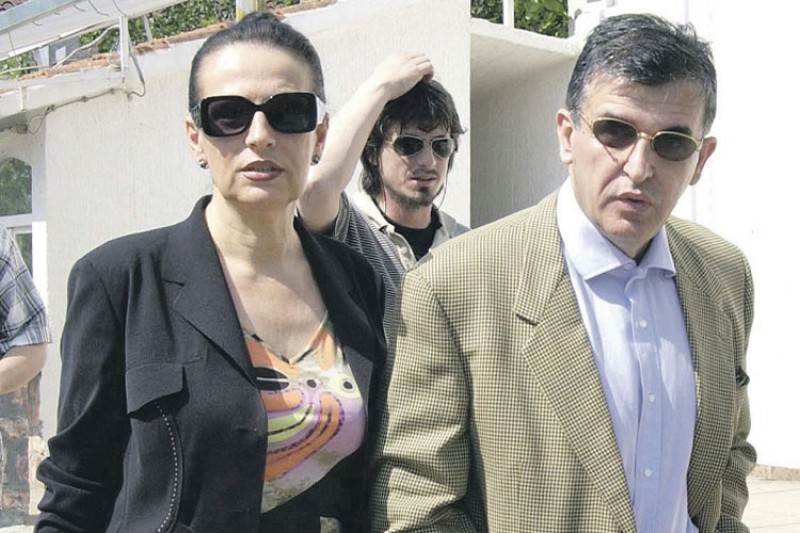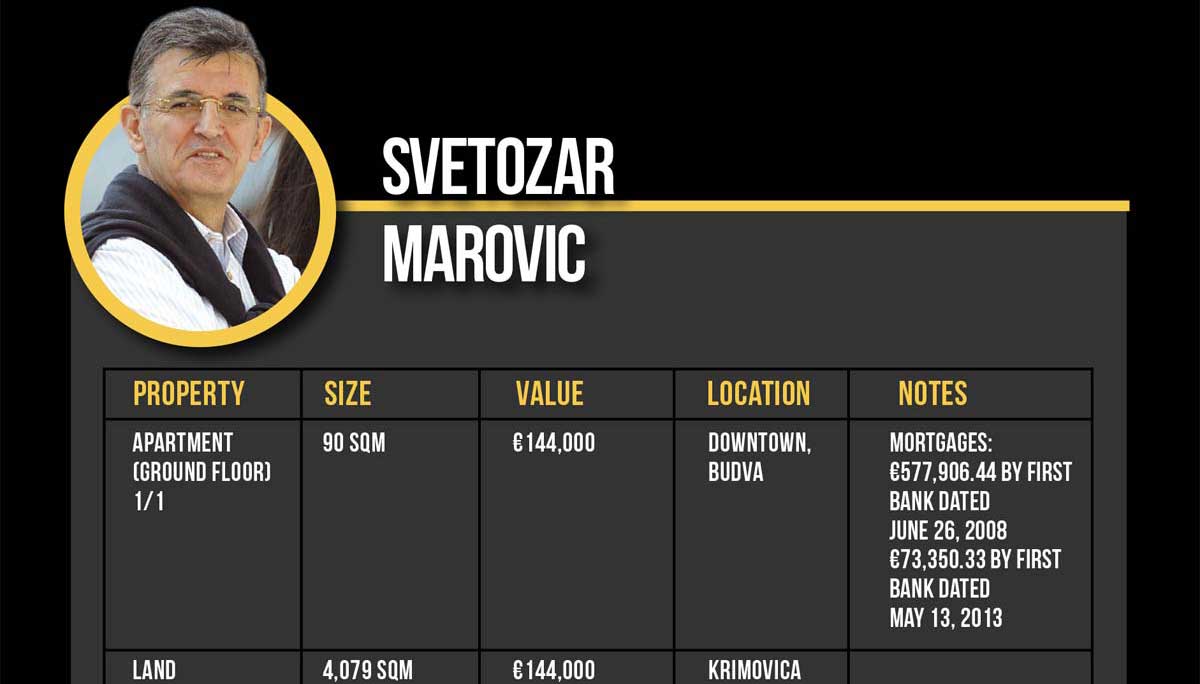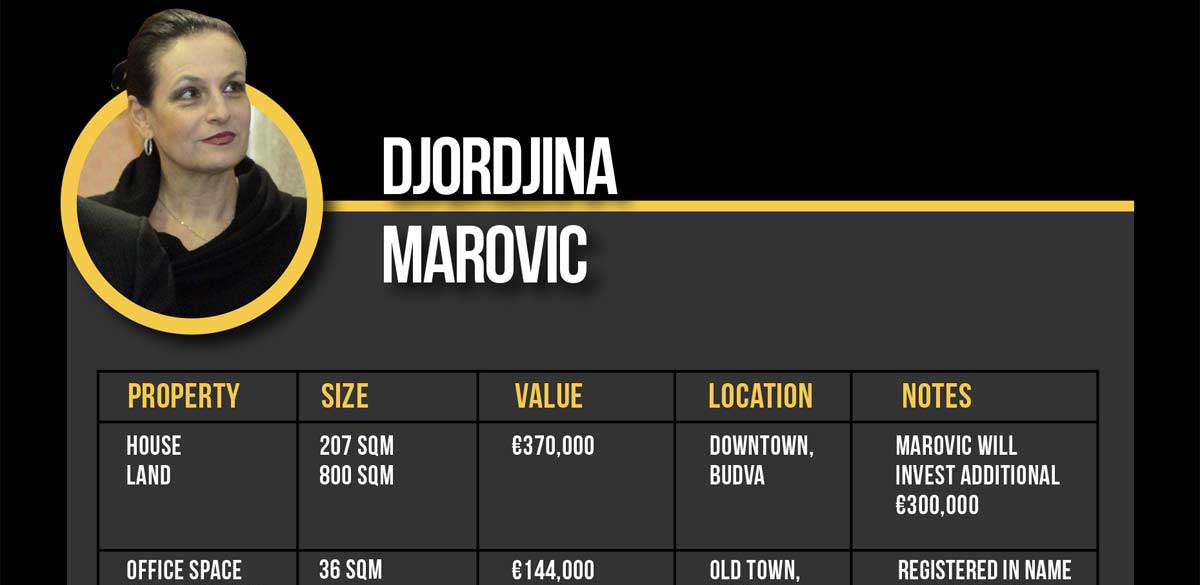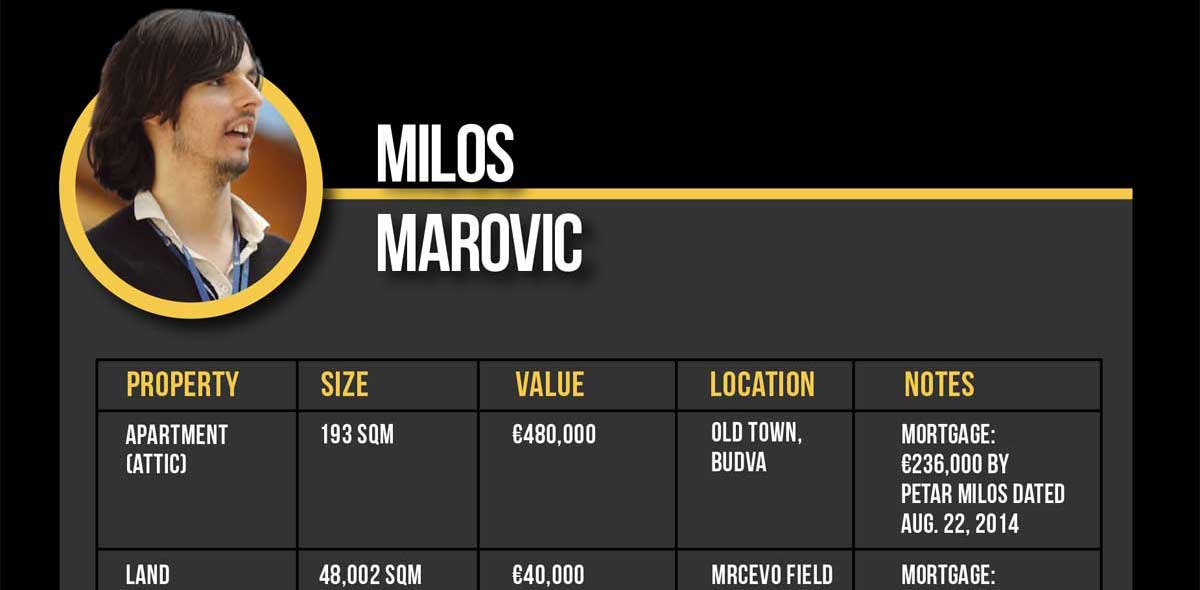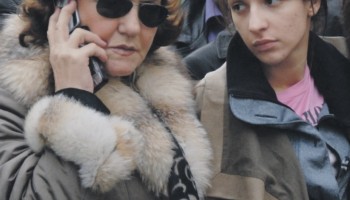Documents from the Swiss Bank HSBC leaked to journalists reveal that the wife of Svetozar Marovic, the former President of Serbia and Montenegro, had US$3.8 million deposited in the bank in 2006/2007.
The funds should have been reported in his asset declarations, but were not.
Marovic lists an apartment, a family house and land, his wife Djordjina’s office space, his daughter Milena’s car and even paintings and a library with 4,200 books in state filings--but not the money. Marovic has been a politician or worked for state-owned enterprises most of his life. It’s not clear where the money came from and he did not answer calls or texts to his number. The Montenegrin daily newspaper Dan has reported that Marovic was questioned last year by prosecutors about his assets in another case. A press release from the prosecutor’s office said he is not under investigation.
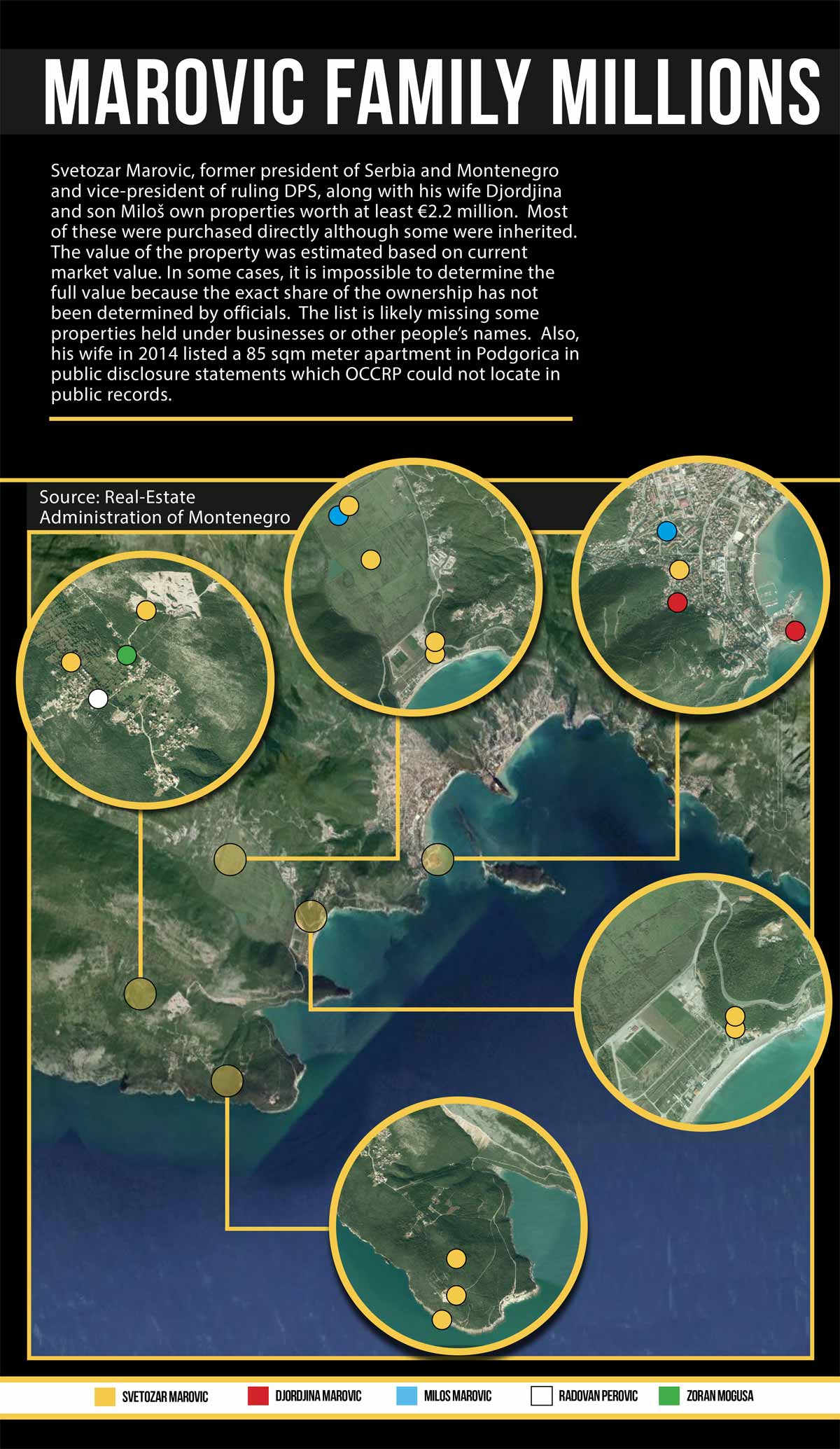 Montenegro’s Law on Prevention of Conflict of Interest requires public officials to file a statement on the day they take office listing their own assets and liabilities and those of their closest family members, and to update it yearly. Marovic has always filed, but has not listed the large HSBC deposit in any declaration.
Montenegro’s Law on Prevention of Conflict of Interest requires public officials to file a statement on the day they take office listing their own assets and liabilities and those of their closest family members, and to update it yearly. Marovic has always filed, but has not listed the large HSBC deposit in any declaration.
Djordjina Marovic, 63, was one of more than 100,000 clients of HSBC Private Bank (Suisse), whose files were leaked to the International Consortium of Investigative Journalists (ICIJ) via the French newspaper Le Monde. ICIJ shared them with the Organized Crime and Corruption Reporting Project (OCCRP) and other regional media. The leaked files provide a glimpse into the super-secret Swiss banking system. Among the clients are royalty, politicians, public figures, celebrities, and business leaders from more than 200 countries.
The records contain data on the accounts of some 80 clients from the former Yugoslavia. Djordjina Marovic’s account was the largest linked to a politician. Both Marovic and their 31-year-old son Milos had access to the account, according to documents.
Marovic opened her account on Feb. 6, 1998. It is not known how much the family kept in the account over the years, although the records show that the maximum amount recorded in the account in 2006 and 2007 was US$3.8 million. As a formal address, she listed Dositejeva bb, Budva. In his 2006 assets declaration Marovic also listed this address as his official residence.
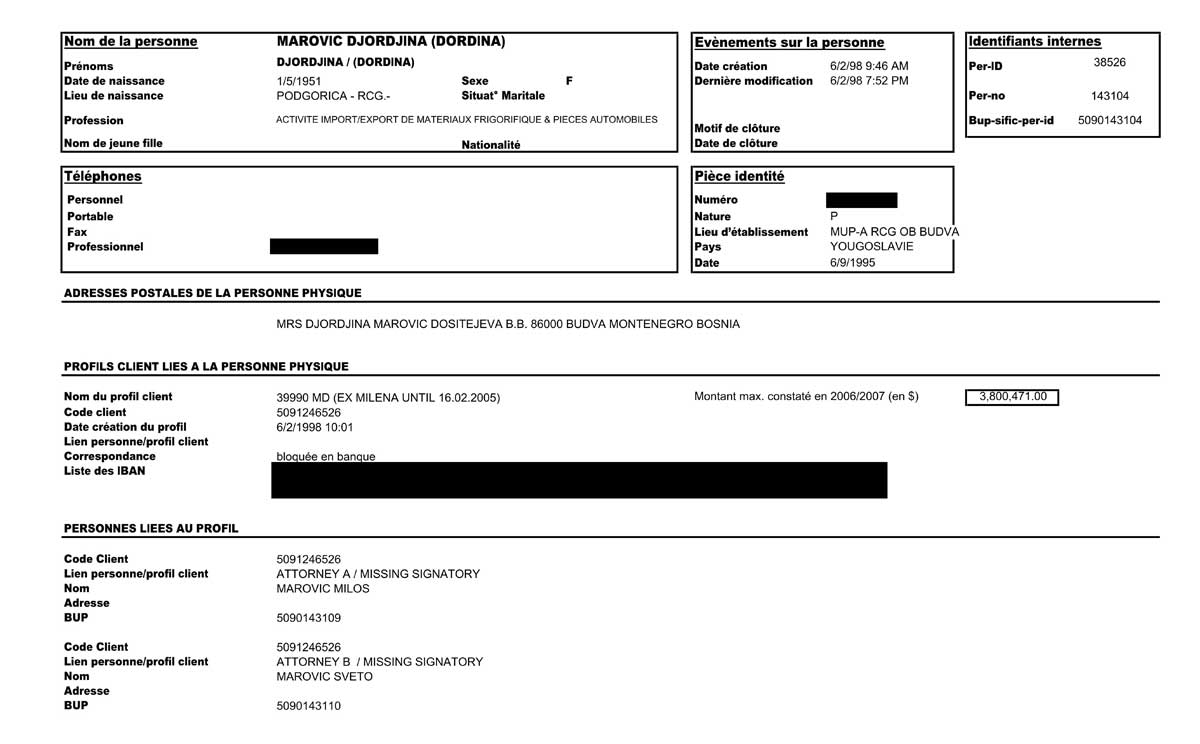 A philosopher by vocation, the 59-year-old Marovic has held public office since 1990 when he was elected as a member of the presidency of the-then Republic of Montenegro. He also served as a member of the assembly, and was elected three times as president of the assembly, including in 1998 when the account was opened.
A philosopher by vocation, the 59-year-old Marovic has held public office since 1990 when he was elected as a member of the presidency of the-then Republic of Montenegro. He also served as a member of the assembly, and was elected three times as president of the assembly, including in 1998 when the account was opened.
Marovic was the first and only president of the State Union of Serbia and Montenegro that existed from 2003 to 2006. After Yugoslavia split up in 1992, the two countries joined to form a new country first called the Federal Republic of Yugoslavia. In 2003, the country structure was modified and renamed and Marovic became the leader until 2006 when Montenegrins voted in a referendum for independence.
Marovic served as deputy prime minister of Montenegro from 2008 to 2010, and he is now the vice president of Montenegro’s ruling Democratic Party of Socialists.
While there are no records of his salary until 2006, his assets declaration from that year show Marovic earned €1,769 (then about US$2,250) a month from his job in Parliament and as chairman of the board of directors of a public company. His wife was listed as unemployed.
At that rate of pay, it would have taken the couple nearly 140 years to earn the US$3.8 million.
There is no indication in the HSBC data about the origin of the money, but the bank did register her occupation as an importer/exporter of cooling materials and automotive parts. According to the business registry, the Marovics did not own a private business in Montenegro before 2006.
Forgotten Assets
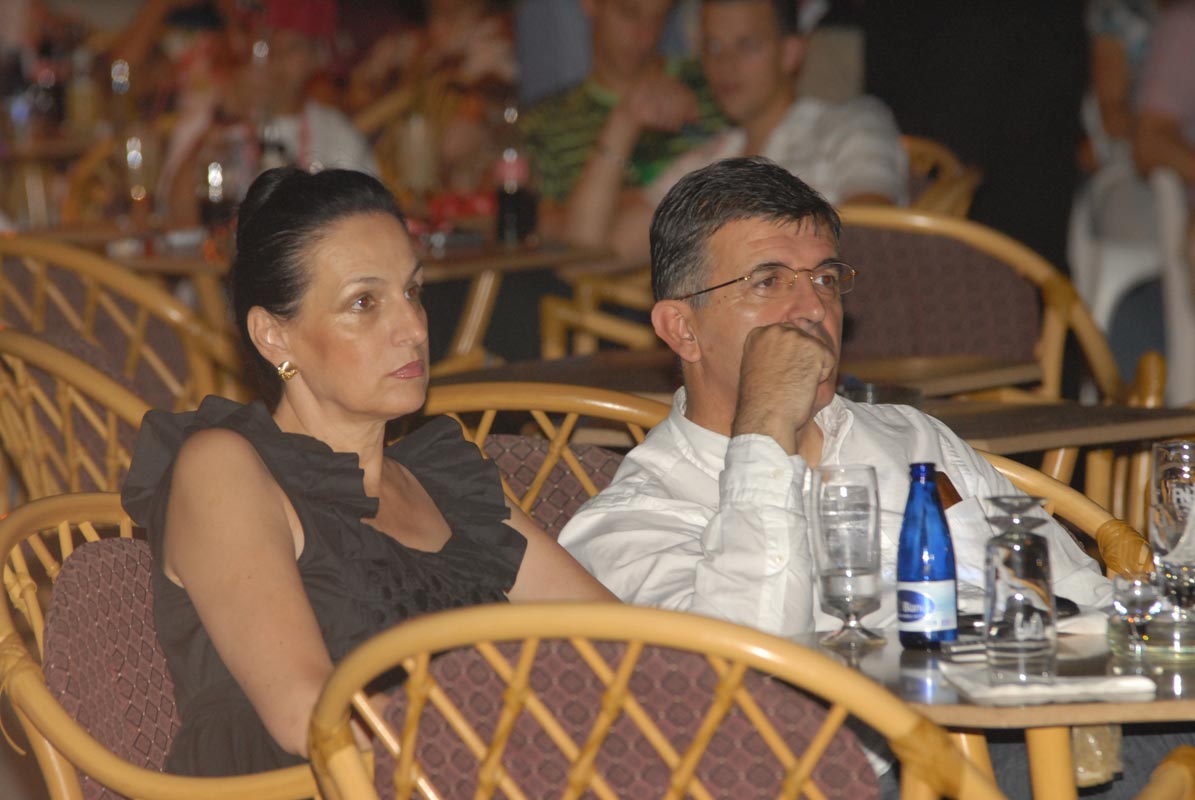 Svetozar Marovic and his wife Djordjina own valuable properties on the Montenegrin coast. The real estate cannot be explained by the couple’s salaries. (Photo by Dan) While his salary seems insufficient for his holdings, assets declarations and land records reveal other assets besides the bank account that Marovic failed to report or to explain.
Svetozar Marovic and his wife Djordjina own valuable properties on the Montenegrin coast. The real estate cannot be explained by the couple’s salaries. (Photo by Dan) While his salary seems insufficient for his holdings, assets declarations and land records reveal other assets besides the bank account that Marovic failed to report or to explain.
According to his 2006 assets declaration, Marovic owned an apartment in Budva, and a house and 20,500 square meters of land in the village of Krimovica near the historic coastal town of Kotor. His wife owned office space in Budva, and his daughter Milena a car.
But according to the Montenegrin daily Vijesti, records from the registry at the time show Marovic failed to report another three apartments and an office registered to his then-unemployed 20-year-old daughter at Dositejeva bb in Budva. Milena Marovic was listed as the owner of a three-bedroom apartment of 98 square meters and a ground floor office of 18 square meters. On the first floor in the same building she owned an apartment of about 100 square meters, and in the attic she owned a 90-square-meter apartment.
The official registry also indicated that Marovic at that time did not own land and his wife did not own office space.
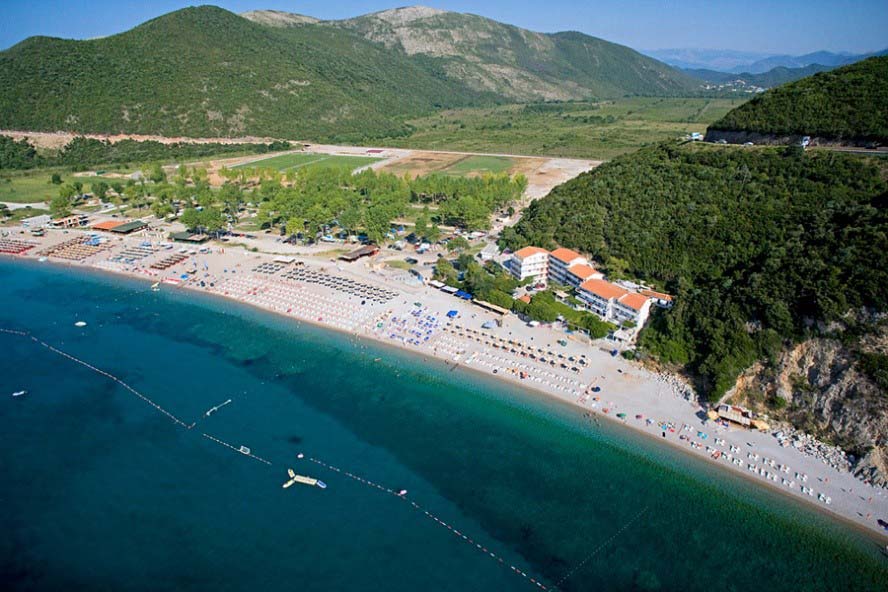 Svetozar Marovic is the owner of valuable land at Jaz, an area near one of the most famous beaches in Montenegro. He is also entitled to an unspecified share of nearly 817,000 square meters in the adjacent Mrcevo Field. During the next two and a half years, Marovic did not hold public office and he filed no new asset declaration until 2009. That year, he revealed a significant inheritance. Marovic reported that he and his brother Dragan had inherited 1,602 square meters of land at Jaz, an area near one of the most famous beaches in Montenegro, near the historic coastal city Budva. He is also entitled to an unspecified share of nearly 817,000 square meters in the adjacent Mrcevo Field, in the same area.
Svetozar Marovic is the owner of valuable land at Jaz, an area near one of the most famous beaches in Montenegro. He is also entitled to an unspecified share of nearly 817,000 square meters in the adjacent Mrcevo Field. During the next two and a half years, Marovic did not hold public office and he filed no new asset declaration until 2009. That year, he revealed a significant inheritance. Marovic reported that he and his brother Dragan had inherited 1,602 square meters of land at Jaz, an area near one of the most famous beaches in Montenegro, near the historic coastal city Budva. He is also entitled to an unspecified share of nearly 817,000 square meters in the adjacent Mrcevo Field, in the same area.
Marovic is one of 600 landowners who owned land in Mrcevo Field, the biggest agricultural tract along the Montenegrin section of the Adriatic Sea. The government seized this in the early 1960s, and turned it into the publicly owned Boka Farm. In 1992 authorities began returning this land to the former owners, but it is unclear exactly how much Marovic will get back.
Jaz and Mrcevo Field have been used as a concert venue hosting the likes of the Rolling Stones and Madonna.
In 2009 Marovic’s wife reported a monthly salary of €370 (about US$515), though no job or employer was specified. A year later she reported a job with the customs office. Despite modest pay, her assets were significantly increased in this report. In addition to office space, she now owned an apartment in Podgorica of 85 square meters and another in Budva of 22 square meters. Records indicate she did not inherit any of this. The Commission for Conflict of Interest rarely checks statements to make sure they are accurate or if items are missing although it is legally required to do so.
Local Powerbrokers
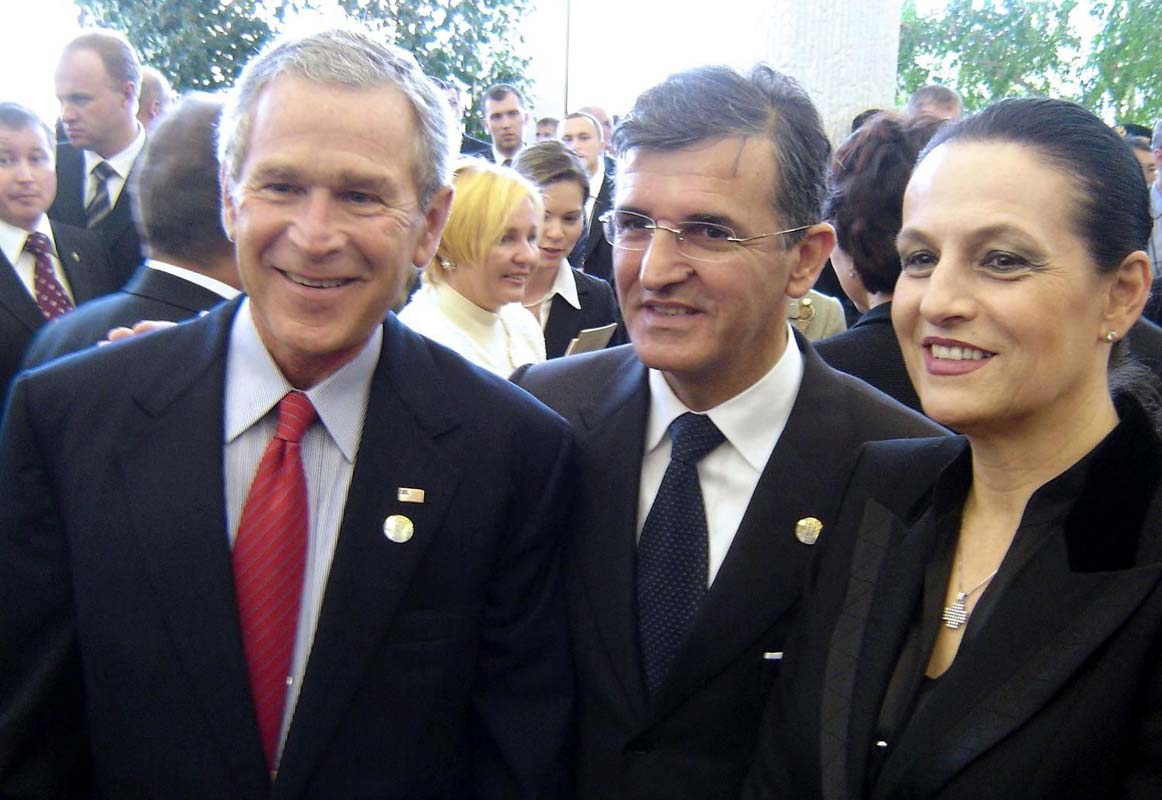 Svetozar Marovic, pictured here with his wife Djordjina and then US president George Bush, has held public office since 1990. (Photo by Dan)The municipality of Budva is home to the most valuable land on the Montenegrin coast, and that is where Marovic’s family has been heavily involved in major construction investment projects both from the government and business sides.
Svetozar Marovic, pictured here with his wife Djordjina and then US president George Bush, has held public office since 1990. (Photo by Dan)The municipality of Budva is home to the most valuable land on the Montenegrin coast, and that is where Marovic’s family has been heavily involved in major construction investment projects both from the government and business sides.
During a building boom in Budva in the 2000s, Marovic’s brother Dragan headed the municipal office in charge of investment while his aunt Mirjana Marovic was the boss in the local Real Estate Administration and his daughter Milena was an intern in the mayor’s office. Since 2010, Milena Marovic has been employed as the city manager. She is also a member of the Executive Board of the local branch of the ruling DPS political party her father leads.
In 2008, Montenegro’s leading anti-corruption group MANS investigated Marovic’s influence in the construction lobby and released data showing that through relatives he was associated with 20 private companies, as many as 10 of which deal with construction and real estate.
Dragan Marovic came under scrutiny after a series of high profile scandals. In December 2010, Marovic’s brother Dragan was arrested on charges of abuse of office.
In January 2011, just one month later, Marovic transferred an apartment in Budva and a house in Krimovica village to controversial businessman Zoran Mugosa in exchange for a €500,000 (about US$670,000) loan. The two signed an agreement and Mugosa was not authorized to sell or otherwise dispose of Marovic’s assets.
Marovic’s son also transferred his Budva apartment to Mugosa by signing a purchase agreement. According to newspaper accounts, a source told Dan the prosecutor’s office is investigating to see if these deals were done to hide or preserve assets although Marovic himself is not under investigation.
In early May 2014, Mugosa was brought in for questioning. He was asked to reveal the origin of the large amounts he had used to buy real estate.
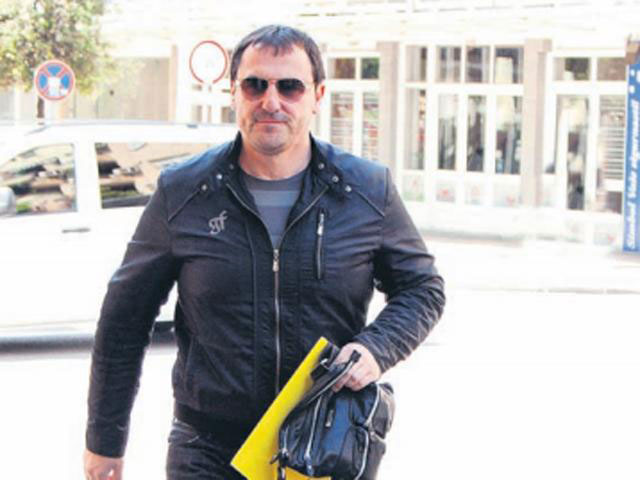 Zoran Mugosa was the recipient of properties transferred by Svetozar Marovic and his son Milos one month after Marovic’s brother was arrested on charges of abuse of office. (Photo by Dan) Mugosa is a former member of the Special Anti-Terrorist Unit and an authorized representative of the Budva real estate agency Perjanik. Mugosa moved from Podgorica to Budva 10 years earlier and in just a couple years acquired a fortune. A founder of his real-estate agency is Borislav Delic, the head of Marovic's security.
Zoran Mugosa was the recipient of properties transferred by Svetozar Marovic and his son Milos one month after Marovic’s brother was arrested on charges of abuse of office. (Photo by Dan) Mugosa is a former member of the Special Anti-Terrorist Unit and an authorized representative of the Budva real estate agency Perjanik. Mugosa moved from Podgorica to Budva 10 years earlier and in just a couple years acquired a fortune. A founder of his real-estate agency is Borislav Delic, the head of Marovic's security.
In April 2012, two luxury cars worth €150,000 (about US$200,000) were set on fire in front of Mugosa’s family home in Podgorica. Police never found a motive or any perpetrators.
Mugosa transferred all but one of the properties back to the Marovics recently.
In January 2012, Marovic’s wife bought 800 square meters of land including a 200-square-meter house in Budva for €300,000 (US$390,000). The same year, the Budva Municipality issued a permit for construction of a new building double that size on the land.
According to the agreement on compensation for land, Djordjina Marovic paid a lump sum of more than €68,000 (then about US$87,000) for tax. According to records, the planned construction costs will amount to at least another €300,000 (then about US$390,000). Marovic never reported this additional investment to the Commission for the Prevention of Conflict of Interest.
Since 2014, Marovic’s wife has been retired on a monthly pension of €380 (about US$420).
Controversial Deals
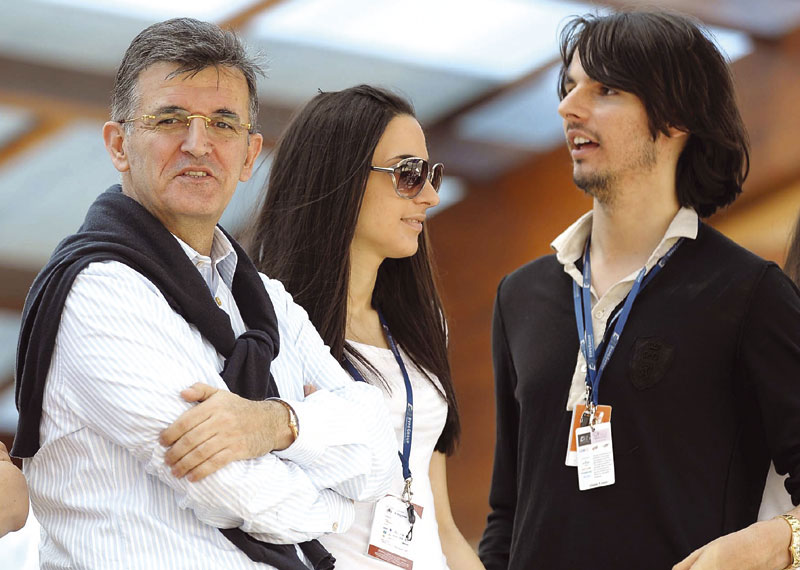 Svetozar Marovic pictured here with his daughter Milena and son Milos. The two men took €3.6 million in loans to build an aquapark but it was never built. The money disappeared and Budva municipality was left holding a €1.6 million debt. (Photo by Dan) Marovic and his son were involved in two very controversial business deals in 2006 and 2007.
Svetozar Marovic pictured here with his daughter Milena and son Milos. The two men took €3.6 million in loans to build an aquapark but it was never built. The money disappeared and Budva municipality was left holding a €1.6 million debt. (Photo by Dan) Marovic and his son were involved in two very controversial business deals in 2006 and 2007.
In March 2006, the Budva municipality announced that a Spanish company would build the first waterpark in the region on nearby Toplis Hill. However, that Spanish investor turned out to be Cyprus-based Numerico Trading Limited, which was owned by Marovic’s son Milos and Dragan Becirovic, who was shot dead in front of his house in Budva in 2011.
The deal gave Numerico Trading a lease on 50,000 square meters for 20 years; an amendment to the deal also promised the company a €1.6 million (then about US$2.2 million) loan from NLB Montenegro Bank guaranteed by the municipal government.
The same project was funded by another bank – First Bank, controlled by the family of Prime Minister Milo Djukanovic. In early 2007, First Bank approved a €2 million (then about US$2.6 million) loan to Marovic’s company Moninvest.
The waterpark was never built and the municipality was left holding the €1.6 million (then about US$2.2 million) debt. The money disappeared. Although the investigation is officially open, it is common in Montenegro for investigations involving powerful people to never reach any conclusion.
First Bank funded another Marovic project with a €5 million (then about US$6.8 million) loan. In May 2007, Marovic partnered with a Russian investor to build an upscale real-estate development. They planned a multistory complex of more than 90,000 square meters of residential and business facilities worth €200 million (then about US$270 million). It included 40 villas and two hotels.
The problem was they were seeking to build it in the Zavala area, a stunning peninsula reaching into the Adriatic, which is one of the last unspoiled tracts on the coast. A zoning plan approved after public debate said this tract should remain undeveloped. However, after Marovic joined the project, the municipality rezoned against the plan to accommodate the development. Marovic’s brother served at the time as head of the municipal office for investments.
Construction begun, but the investor never obtained the required permits. MANS launched a campaign and the construction was shut down in March, 2008. Inspectors visiting it months earlier had realized it did not have the proper permits and was thus illegal. In May 2008, Marovic sold his share to his business partner for €1 million (then about US$1.5 million) to be paid over five years and he withdrew from the deal.
This Zavala project was one of the most talked-about construction projects in Montenegro.
While records indicate they held millions in the Swiss account, the Marovic family was taking loans from First Bank but many had not been paid back. Currently their Budva apartment is mortgaged for two loans totaling €650,000 (US$720,000). The most recent one was taken out in 2013. Previously First Bank took two properties from Marovic’s wife for nonpayment of loans and offered them for sale.
It is not known if US$3.8 million remains in the Swiss account or if it has been withdrawn.
Patrucic works for the OCCRP based in Sarajevo, Bosnia, and Milovac works for MANS' Center for Investigations in Podgorica, Montenegro.
